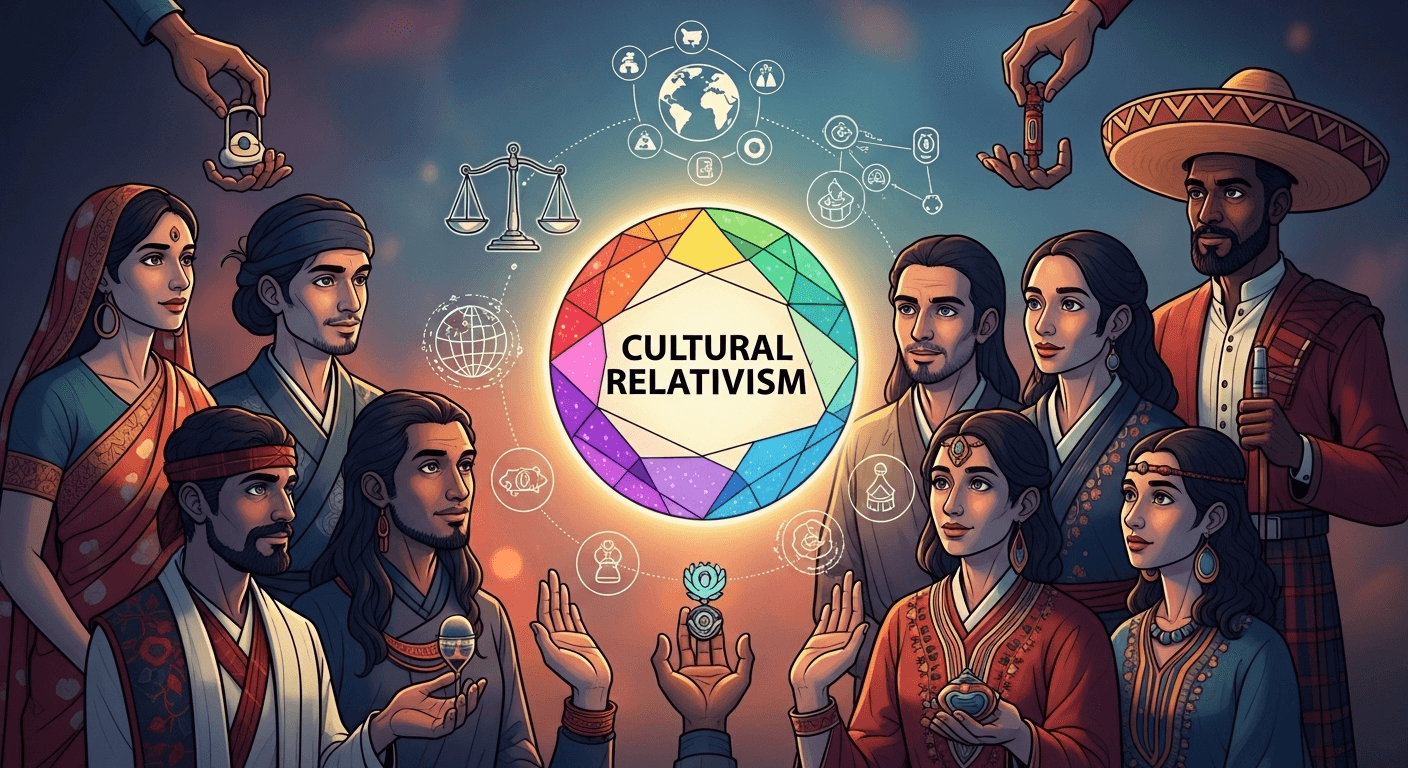Navigating our increasingly interconnected world often exposes us to a dazzling, and sometimes bewildering, array of customs, beliefs, and values. What is considered polite in one country might be deeply offensive in another. A sacred ritual for one group could appear bizarre to an outsider. This raises a fundamental question: is there a universal yardstick for 'right' and 'wrong', or is morality simply a product of the culture we are born into? This is the very heart of a powerful and often controversial anthropological idea. In this comprehensive guide, the concept of cultural relativism explained will be our central focus, exploring its origins, principles, real-world examples, and the critical debates it continues to inspire. The Core Principles of Cultural Relativism At its most fundamental level, cultural relativism is the principle that an individual's beliefs and activities should be understood by others in terms of that individual's own culture. It proposes that there is no absolute or universal standard of morality, truth, or beauty. Instead, what is considered good, bad, right, or wrong is relative to the social, cultural, and historical context. A cultural relativist argues that to truly understand a practice, you must view it from the perspective of the people who practice it, setting aside your own cultural biases. This approach stands in direct opposition to ethnocentrism, which is the tendency to view and judge other cultures through the lens of one's own. An ethnocentric person believes their own culture is the "normal" or "superior" one, and all other cultures are evaluated against this benchmark. For example, an ethnocentric viewpoint might dismiss arranged marriages as "backwards" simply because they are not the norm in Western societies, without attempting to understand the social, economic, and familial stability they might provide within their own cultural context. Cultural relativism was developed as an anthropological tool to combat this very kind of ingrained prejudice. It is crucial to understand that cultural relativism, as a methodological tool, is primarily about understanding, not necessarily agreement or endorsement. An anthropologist studying a society that practices a specific coming-of-age ritual is not required to personally agree with the ritual or find it morally acceptable. However, they are required to suspend judgment to understand why the ritual is important to that culture, what its symbolic meaning is, and what function it serves within the social structure. This suspension of judgment allows for a more objective and empathetic analysis, free from the contamination of one's own cultural preconceptions. No Universal Moral Standard The first cornerstone of cultural relativism is the assertion that there are no objective, universal moral truths that apply to all people, in all places, at all times. Morality is seen as a cultural construct. The mores (customs and folkways) of a society dictate what is considered acceptable behavior. What is a moral imperative in one culture might be a grave sin in another. Consider dietary laws. The consumption of pork is strictly forbidden in Judaism and Islam, whereas it is a staple food in many other cultures around the world. Similarly, in India, the cow is considered a sacred animal by many Hindus and harming one is unthinkable, while beef is central to the cuisines of North America and Europe. A cultural relativist would not ask "Who is right about eating pork or beef?" Instead, they would explore the historical, religious, and ecological reasons behind these different food taboos and preferences, recognizing them as equally valid within their respective cultural frameworks. The Indispensable Role of Context The second core principle is the absolute necessity of context. Cultural relativism posits that no cultural practice or belief can be properly understood when isolated from its wider cultural context. An action, belief, or value is not inherently "strange" or "illogical"; it only appears so when we strip it of its meaning and function within its own system. To judge it without this context is to misunderstand it completely. For instance, the practice of potlatch among certain Indigenous peoples of the Pacific Northwest Coast involved chiefs giving away or destroying vast quantities of wealth to affirm their status. From an outsider's perspective focused on capital accumulation, this might seem incredibly wasteful and irrational. However, within the cultural context of the Kwakiutl people, the potlatch was a complex economic and social institution. It served to redistribute wealth, solidify social hierarchies, create alliances, and publicly validate a chief's claims to power and prestige. Without understanding this context, the entire practice is misinterpreted. The Origins and Historical Context of the Concept While philosophers since ancient Greece have grappled with the diversity of human customs, the modern concept of cultural relativism is deeply rooted in 20th-century anthropology. It emerged as a direct response to the prevailing theories of cultural evolutionism and scientific racism that dominated Western thought in the 19th century. These theories proposed a hierarchical model of cultural development, placing Western European civilization at the apex and ranking all other societies along a linear scale from "savage" to "barbaric" to "civilized." The primary architect of cultural relativism as we know it today was the German-American anthropologist Franz Boas (1858-1942), often hailed as the "Father of American Anthropology." Boas was a fierce critic of the armchair anthropology of his time, which involved making sweeping generalizations about other cultures based on secondhand, often biased, accounts from missionaries and colonial administrators. He championed the importance of long-term, intensive fieldwork and participant observation. Boas's work was revolutionary. He argued that each culture has its own unique history and develops according to its own internal logic, a concept known as historical particularism. He rejected the notion that cultures could be ranked on a universal scale. Through his meticulous research among the Inuit of Baffin Island and the Kwakiutl people of Vancouver Island, Boas demonstrated that so-called "primitive" societies possessed languages, social structures, and worldviews that were just as complex, sophisticated, and rational as those of European societies. His goal was to use anthropology as a scientific tool to fight prejudice and promote tolerance. Franz Boas and the





